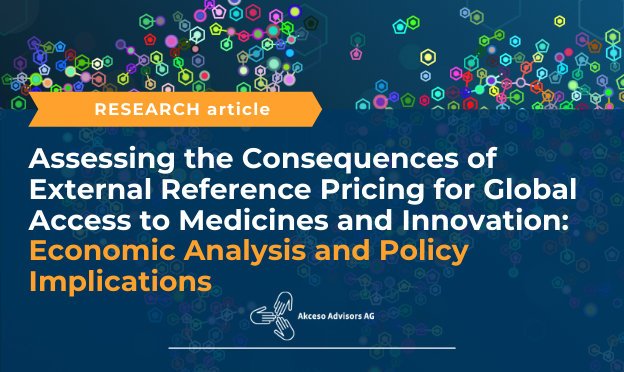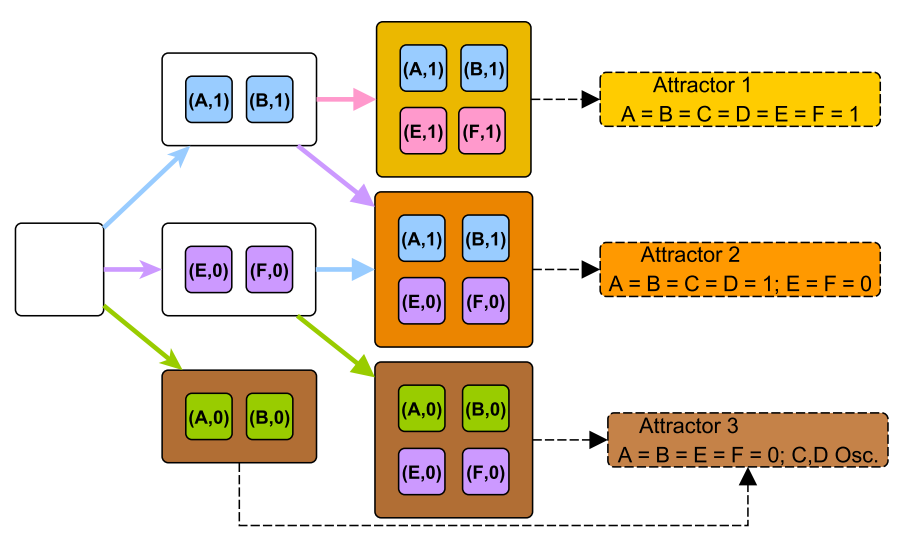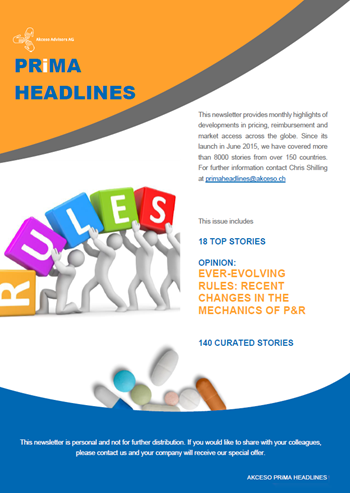16-September-2021
Akceso Advisors reflection from András Incze (CEO an Founder) on a latest development in the US pharmaceuticals market and the impact of International Reference Pricing.
Comprehensive Plan for Addressing High Drug Prices
The US Government just published its “Comprehensive Plan for Addressing High Drug Prices”. It lists a number of initiatives and ideas, including:
- Drug price negotiations in Medicare Part B and D
- Accelerating biosimilars access and stopping “pay-for-delay” of generics
- Limiting price increases
- Fostering Drug (re)importation programs from Canada
- Promoting Value-based pricing and Capitation models
- Expanding Government-funded research
While details are scarce in the Plan to be able to judge reliably, some of the measures, if implemented properly, could indeed address some aspects of “high” drug prices, increase affordability and improve patient access.
What the Plan does NOT mention is International Reference Pricing – and this is good news for patients in the US and worldwide (and for manufacturers, too).
The impact of International Reference Pricing (IRP)
At Akceso Advisors, we researched the impact of International Reference Pricing (IRP) on patient access and innovation, with our good colleagues from academia Lou Garrison, Jaime Espin and Zoltan Kalo. As presented at recent conferences – like ISPOR – we demonstrated that
US introduction of International Reference Pricing would
- further reduce patient access to innovative medicines in increasing number of countries – even in large, developed ones
- reduce innovative new drug development, thus decrease availability of future new treatment options even to US patients
This is due to the dynamics of IRP interdependencies across the world and to the ensuing rational market player behaviors.
Effects of IRP cause losing QALYs
"If the US implemented IRP, such health loss would be very much higher."
Our research showed, with an example of an advanced heart failure medication, that unintended effects of IRP already cause losing half a million QALYs as a result of reduced patient access worldwide, for this single drug alone – even without the US using IRP to set drug prices! If the US implemented IRP, such health loss would be very much higher.
The funds from treating the patients who currently don’t have access to this heart failure treatment, or its usual share devoted to R&D, would suffice for the full development of a new innovative drug – that is now lost. Again, if the US implemented IRP, even more innovation would go unfunded, depriving patients in the US and worldwide of future therapeutic advances.
We are very glad to learn IRP is not on the drug pricing agenda for the US, and hope this continues to be the case. For the benefit of patients today and tomorrow. In the US and worldwide.
Read more in our blog
Mind the communication gap in patient access
Read the story of how the clear communication unlocked the market access potential of an innovative product for our client.
Akceso’s ‘Evidence-based Asset Valuation’ methodology
What the three-part evidence-gathering method includes and how it helps to achieve both patient- & public health benefit and long-term economic success.
How a hostage negotiator can inspire business leaders?
Read the thoughts of András Incze related to the Advanced High-Performance Leadership (HPL) program led by Professor George Kohlrieser.
One of the things I learnt from Akceso – always welcome challenges
One of the things that I have learnt during my time with Akceso is that, if you believe that something is good and brings value, do not wait to start doing it.









